If you adore cats but struggle with allergies, the breed you choose can make all the difference. While no cat breed is 100% hypoallergenic, some are more compatible with allergy sufferers than others, thanks to varying levels of dander production and fur types. Here’s a breakdown of the best feline companions to consider—and the ones to avoid—if you want a more allergy-friendly home.
1. Balinese: Surprisingly Low-Allergy for a Long-Haired Cat
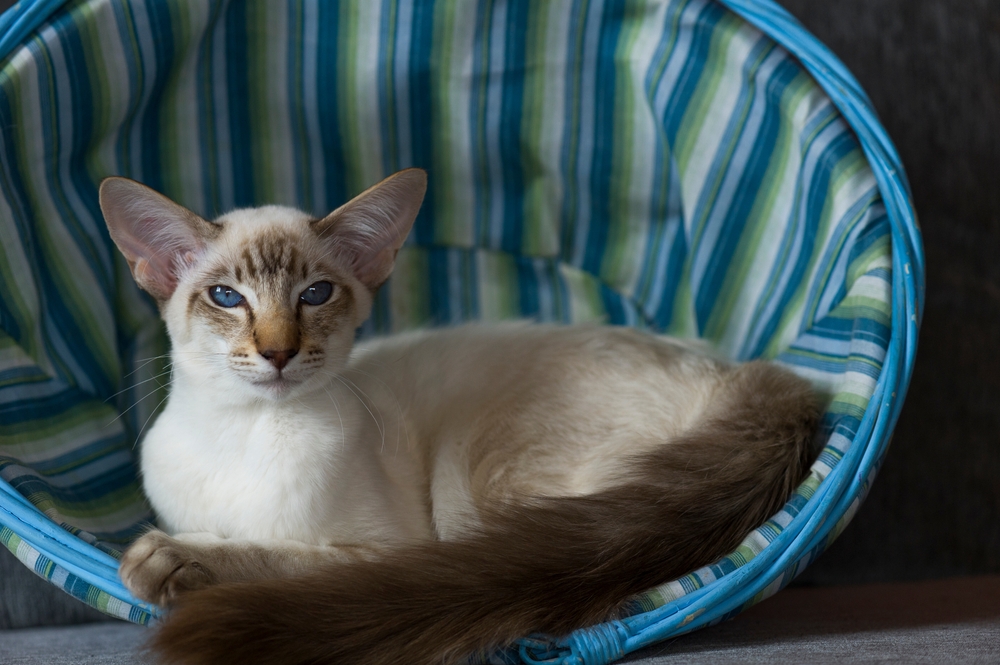
The Balinese cat might surprise you—its long, luxurious fur doesn’t mean more allergens. This breed produces less of the Fel d 1 protein, the main allergen in cat saliva, than most other cats. Their silky coat also sheds minimally, making them an ideal choice for allergy sufferers who still want the elegance of a long-haired cat without the extra sneezes.
2. Sphynx: The Classic Choice for Allergy-Friendly Cats
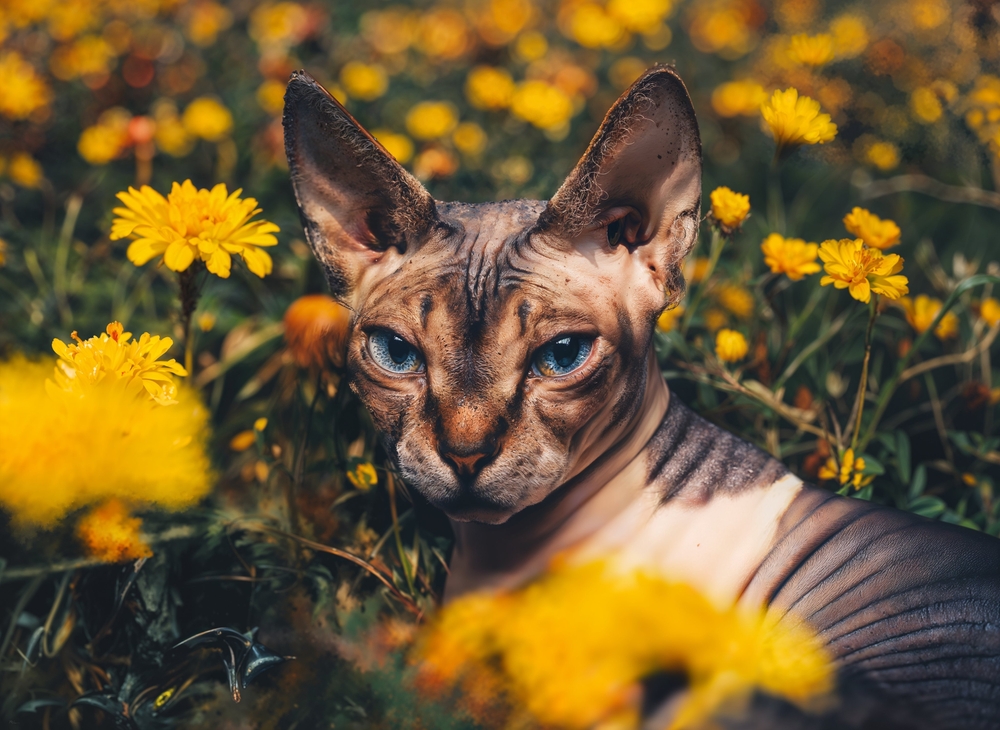
The Sphynx cat is often the first thought for those with allergies, and for good reason. This breed has virtually no fur, which significantly reduces airborne allergens. While their skin can still produce some dander, regular baths keep it under control. Plus, their charming personalities and affectionate nature make them a delightful addition to any household seeking a unique pet that’s low on allergen triggers.
3. Russian Blue: Low-Allergen Fur with a Dash of Elegance
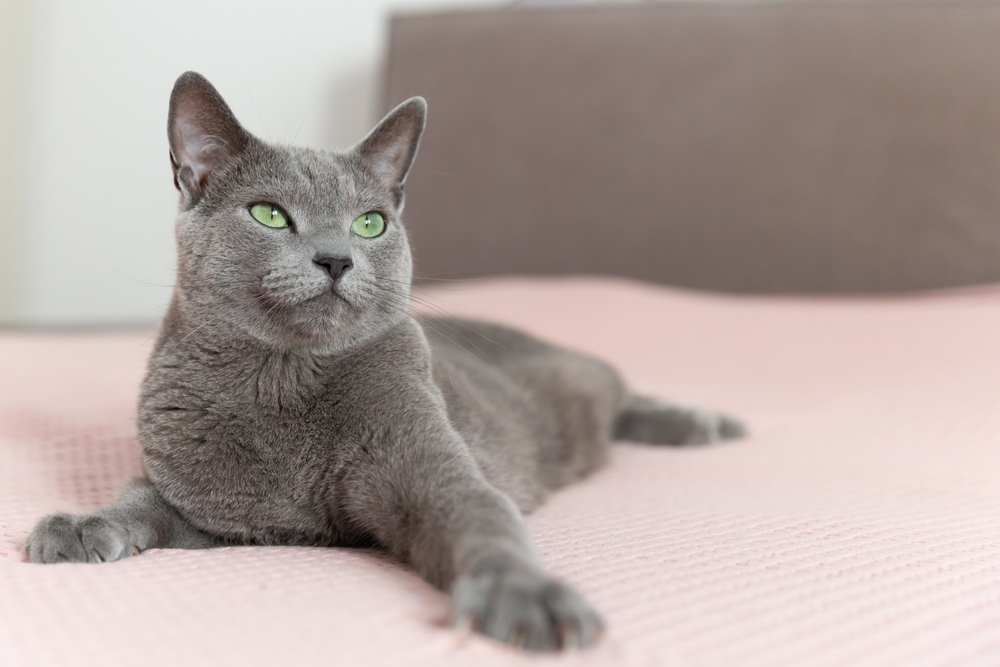
Known for their plush, dense coat, Russian Blues produce lower levels of the Fel d 1 protein, which can make them easier for allergy sufferers to handle. Their fur also tends to trap allergens closer to the skin rather than releasing them into the air. Russian Blues are an excellent choice if you’re looking for a low-maintenance, allergy-friendly companion with a calm and reserved personality.
4. Oriental Shorthair: Sleek, Hypoallergenic, and Playful
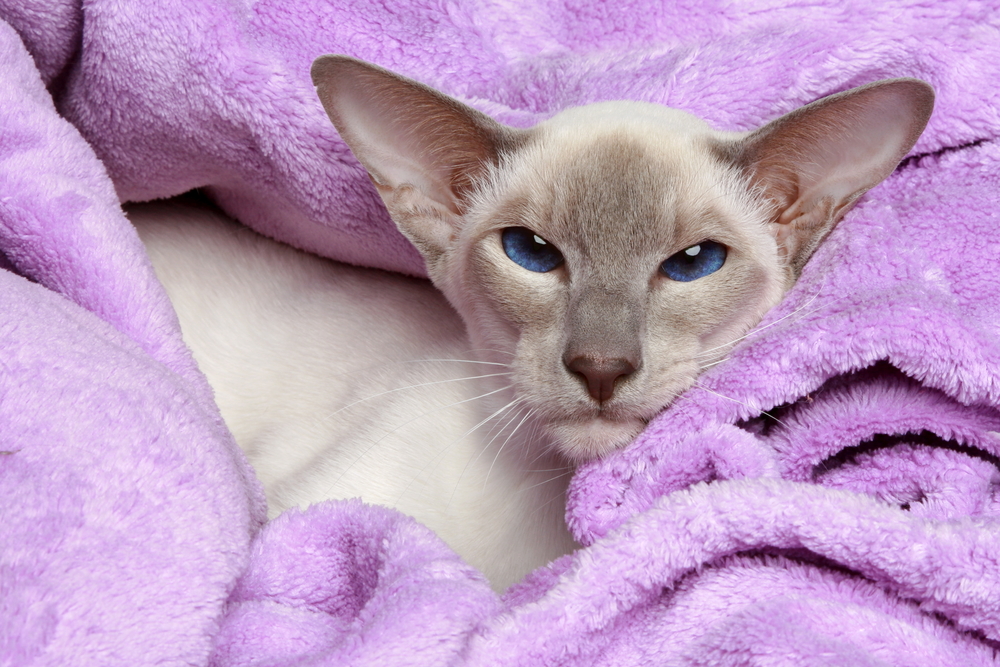
The Oriental Shorthair has a sleek, fine coat that doesn’t shed excessively, making it a smart choice for those with allergies. Their short fur produces less airborne dander, and their low-maintenance grooming needs keep shedding to a minimum. These cats are active and affectionate, adding a playful, social element to their low-allergen profile that’s ideal for households with plenty of interaction.
5. Bengal: Hypoallergenic and Alluringly Exotic
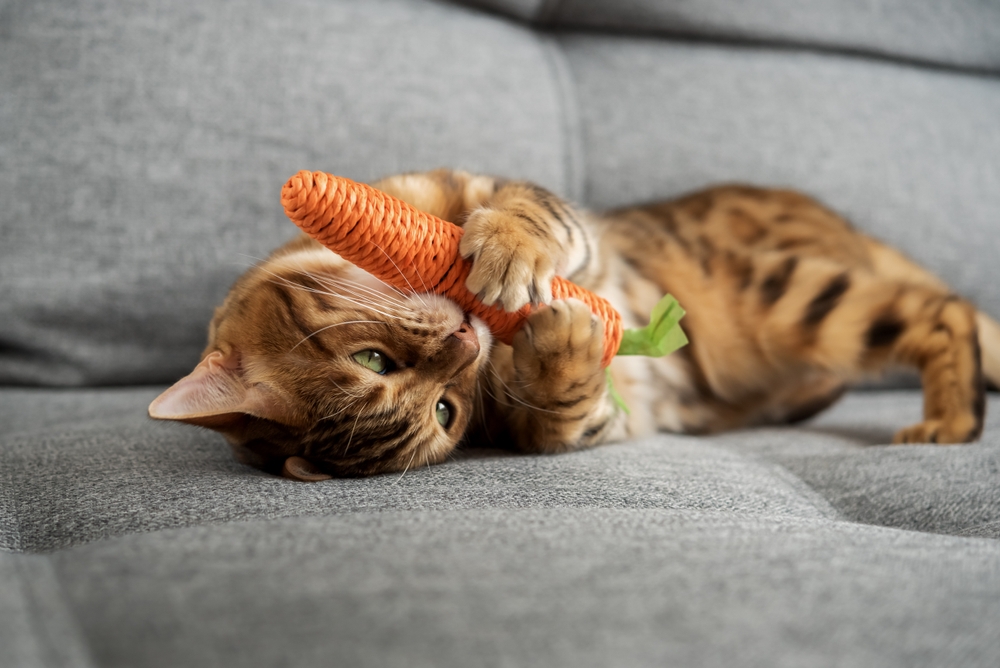
Bengal cats have a short, pelt-like coat that produces minimal dander, making them a surprisingly good fit for allergy-sensitive owners. Their fur texture keeps shedding down, and Bengals are known for their energetic, dog-like personalities. Their unique look and manageable allergen levels make them an ideal choice if you want a low-shedding, eye-catching cat with a touch of the wild.
6. Cornish Rex: Less Fur, Less Trouble
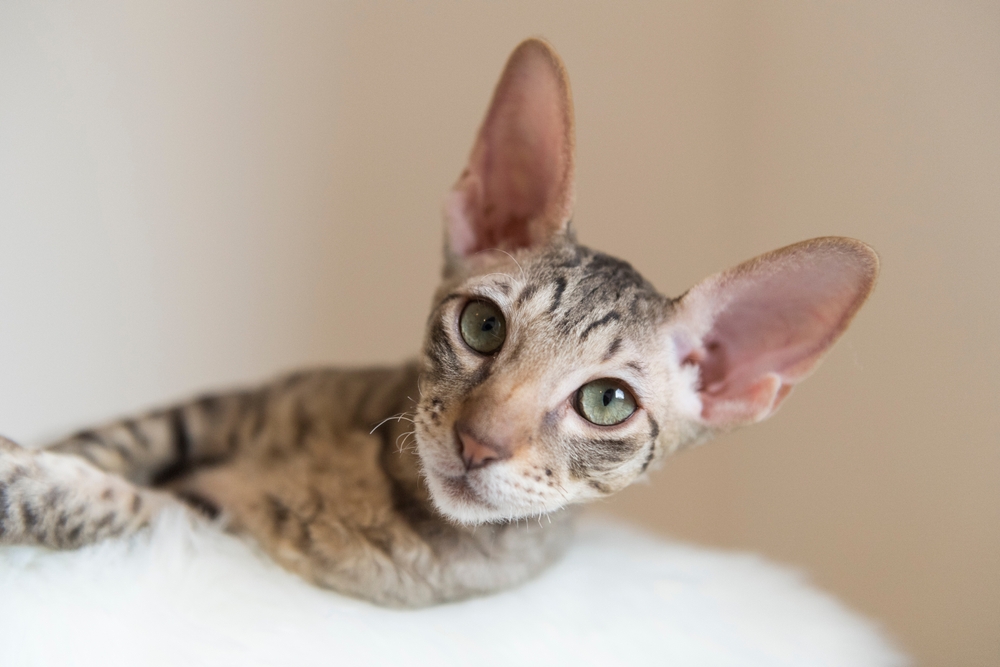
With its curly, short coat, the Cornish Rex sheds minimally, reducing the dander in the home. This unique breed has only one layer of fur, which makes grooming easier and allergen production lower. If you’re looking for a hypoallergenic cat with a quirky, playful personality and low-maintenance fur, the Cornish Rex is a fantastic option for an allergy-sensitive home.
7. Devon Rex: Curly Coat, Minimal Dander
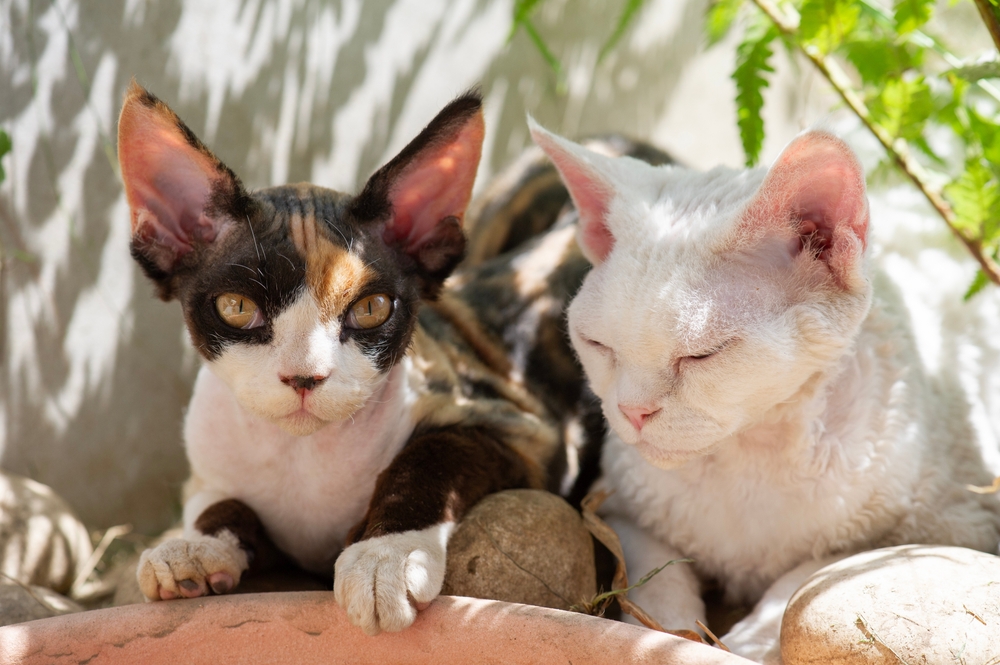
The Devon Rex has a short, curly coat that sheds very little, making it another excellent choice for allergy sufferers. This breed’s unique fur traps dander close to the body, reducing airborne allergens in the home. Devon Rex cats are also known for their affectionate nature and love of human company, creating a perfect mix for a cuddly but low-allergen pet.
8. Javanese: Low-Shedding with Minimal Fel d 1 Production
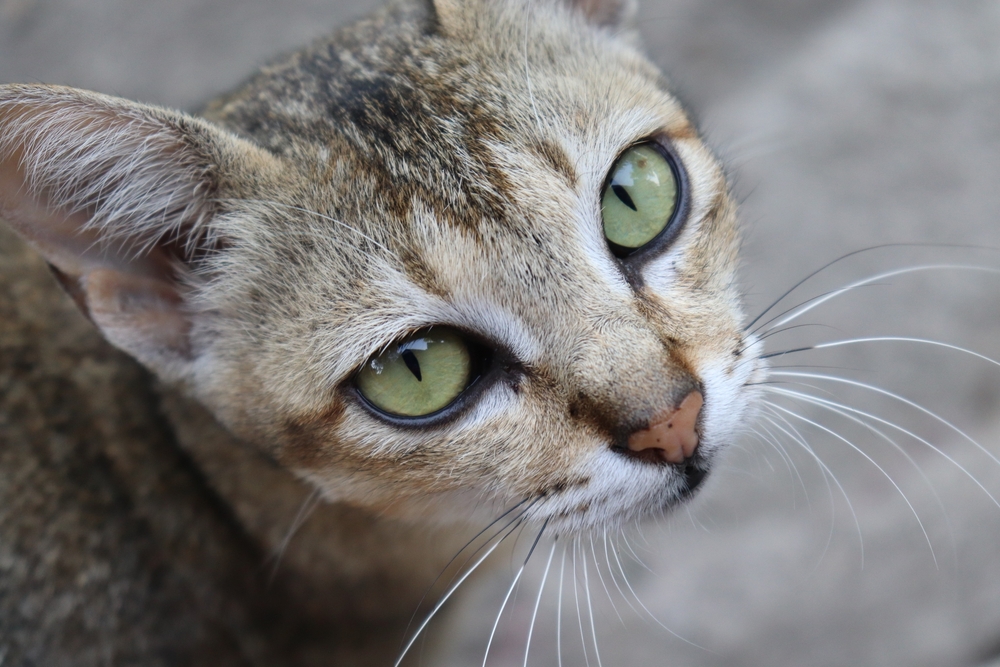
Javanese cats have a single-layer coat that sheds minimally and requires little maintenance. This lack of an undercoat means fewer allergens are released into the environment, making them more manageable for people with mild to moderate allergies. With their affectionate, social personality, Javanese cats bring warmth and companionship without excessive allergy triggers.
9. LaPerm: Unique Fur and Low Allergen Potential
Known for its curly, low-shedding coat, the LaPerm cat is a great choice for allergy-sensitive owners. This breed’s unique coat doesn’t shed heavily, and the curls tend to trap dander close to the body. LaPerms are friendly, affectionate, and distinctive-looking, making them an intriguing choice for anyone who wants a unique, hypoallergenic pet.
10. Burmese: Smooth Coat, But Moderately Allergenic
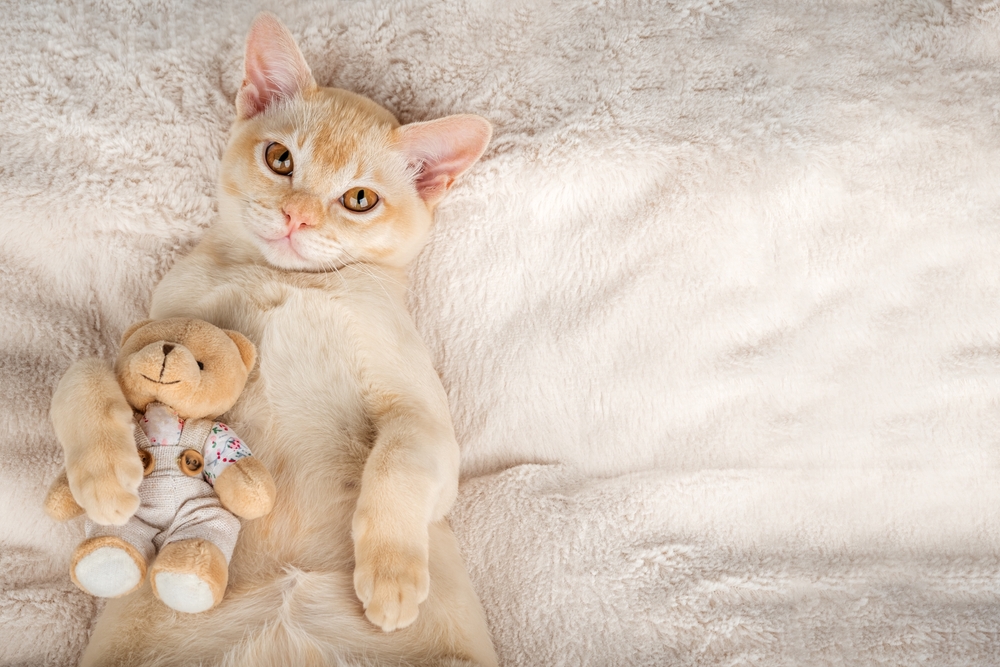
The Burmese cat has a short, fine coat that may be suitable for those with mild allergies. While not as hypoallergenic as some other breeds, they shed less than the average cat, and regular grooming can help minimize allergen production. Burmese cats are known for their social and playful nature, and with a bit of extra care, they can be a manageable option for some allergy sufferers.
11. Abyssinian: Low Shedding, But Not Ideal for Severe Allergies
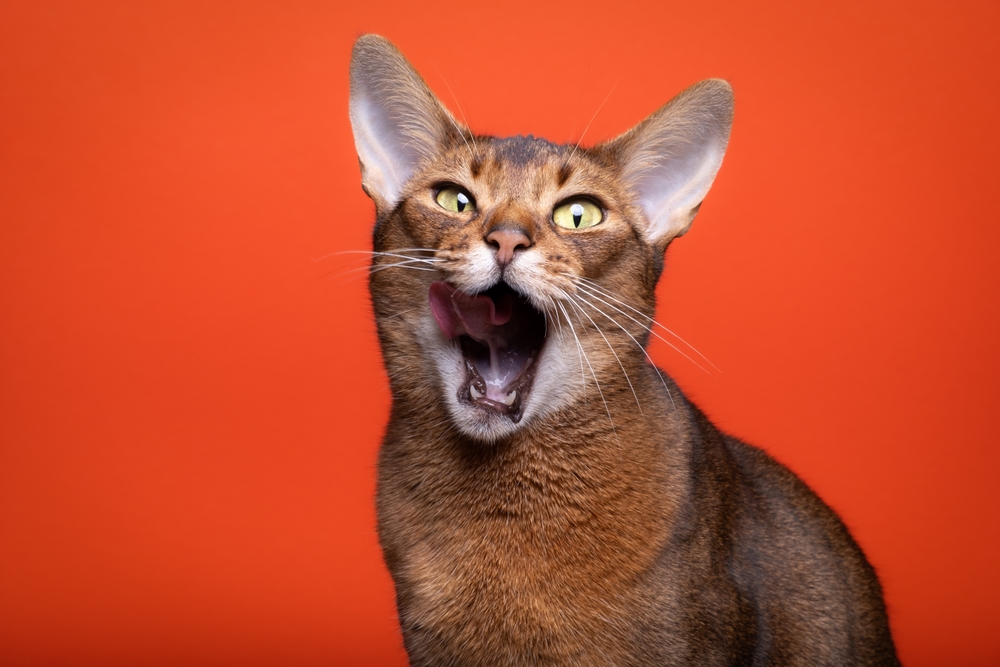
Abyssinians are low-shedding and low-maintenance cats, but they still produce Fel d 1 protein, which can affect highly sensitive individuals. Their active, affectionate personality makes them a joy to be around, but those with more severe allergies may want to approach with caution. For those with milder sensitivities, however, an Abyssinian can be an energetic and allergy-manageable companion.
12. American Shorthair: Not the Best Bet for Allergy Sufferers
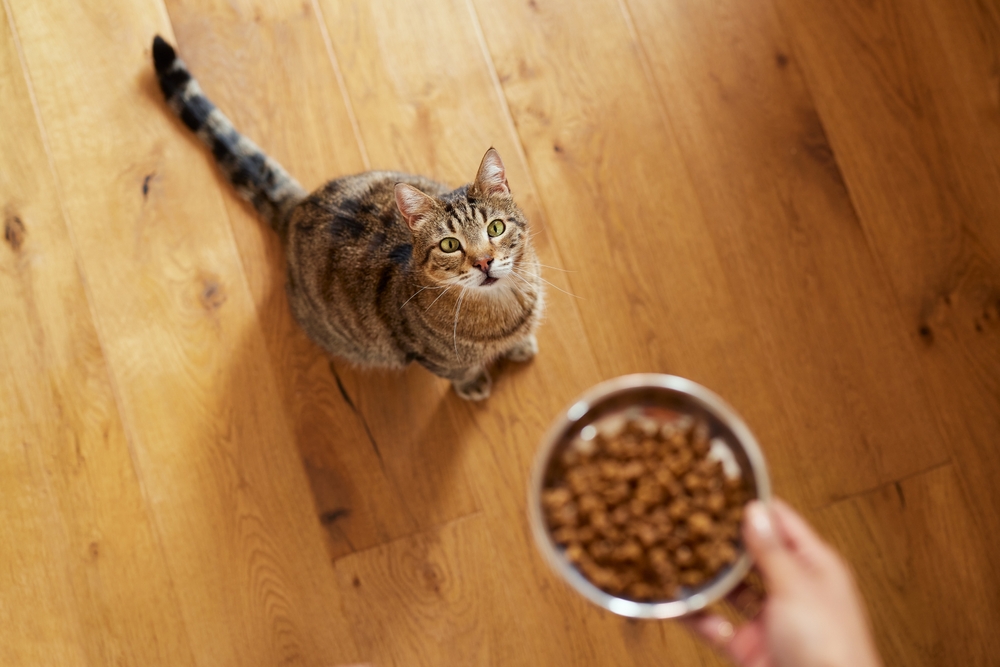
While American Shorthairs are beloved for their sturdy build and easygoing nature, they’re not particularly allergy-friendly. They shed moderately and produce a fair amount of dander, which can exacerbate allergies. If you have mild sensitivities, they might be manageable, but for severe allergies, this breed may prove challenging.
13. Persian: High Maintenance and High-Allergen Potential
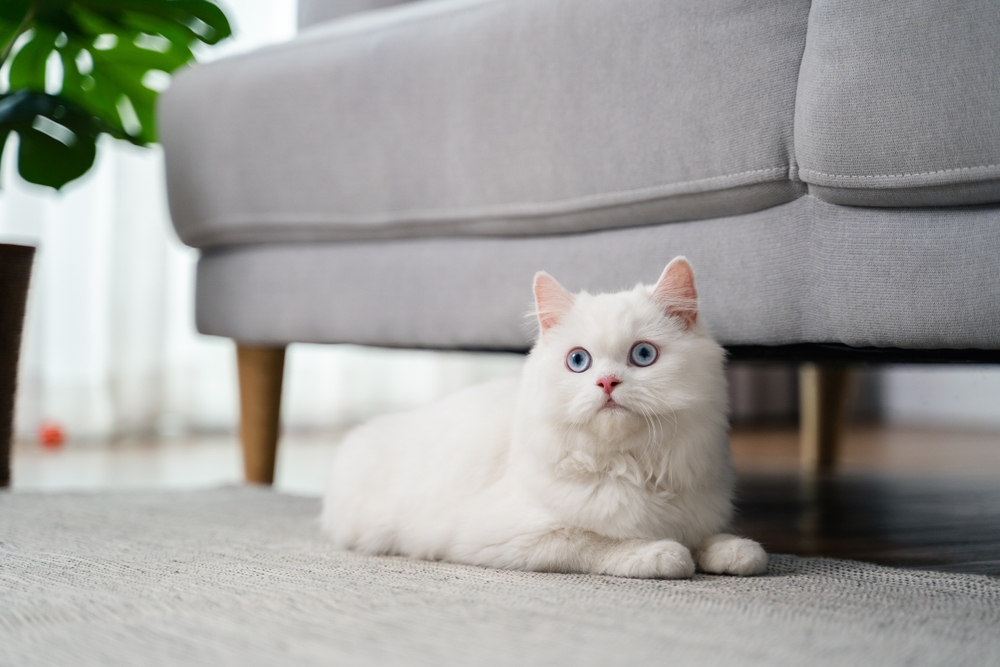
Persian cats are stunning but not ideal for allergy sufferers. Their long, thick fur produces and traps plenty of dander, and they require significant grooming to manage shedding. For those with allergies, Persians can be a challenge, as even with regular grooming, their coat may release enough dander to cause reactions. Consider an alternative if you’re prone to pet allergies.
14. Maine Coon: Majestic, But High-Allergy Risk
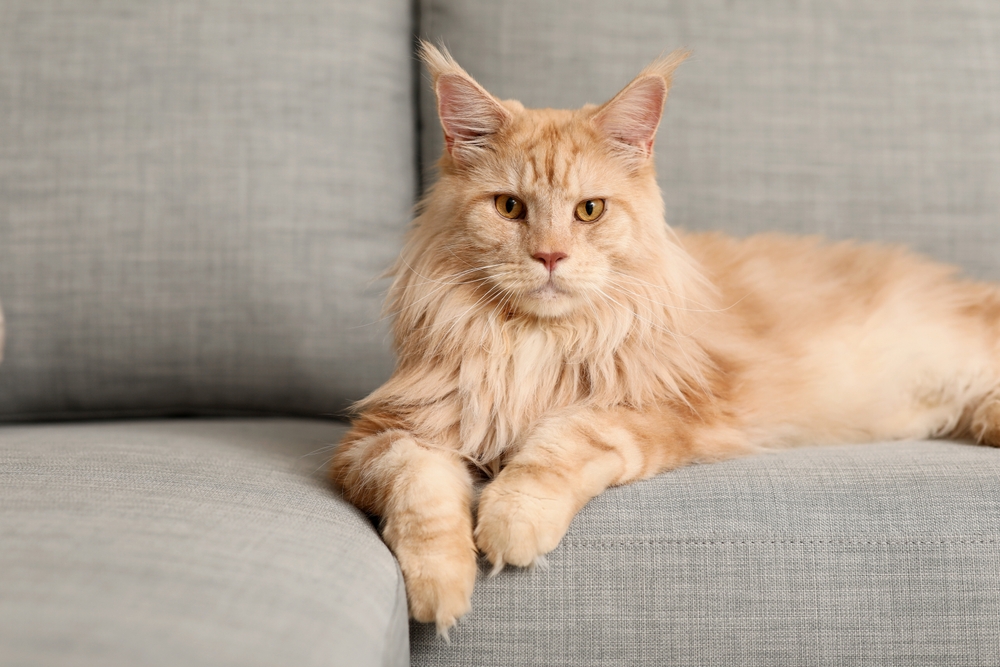
Maine Coons are majestic and friendly, but their thick, luxurious fur can be a trigger for allergy sufferers. Known for their size and dense coat, Maine Coons shed a lot and produce significant dander. While they make affectionate and social companions, their grooming needs and allergen potential make them a challenging choice for those sensitive to cat allergens.
15. Ragdoll: Adorable but Allergen-Heavy
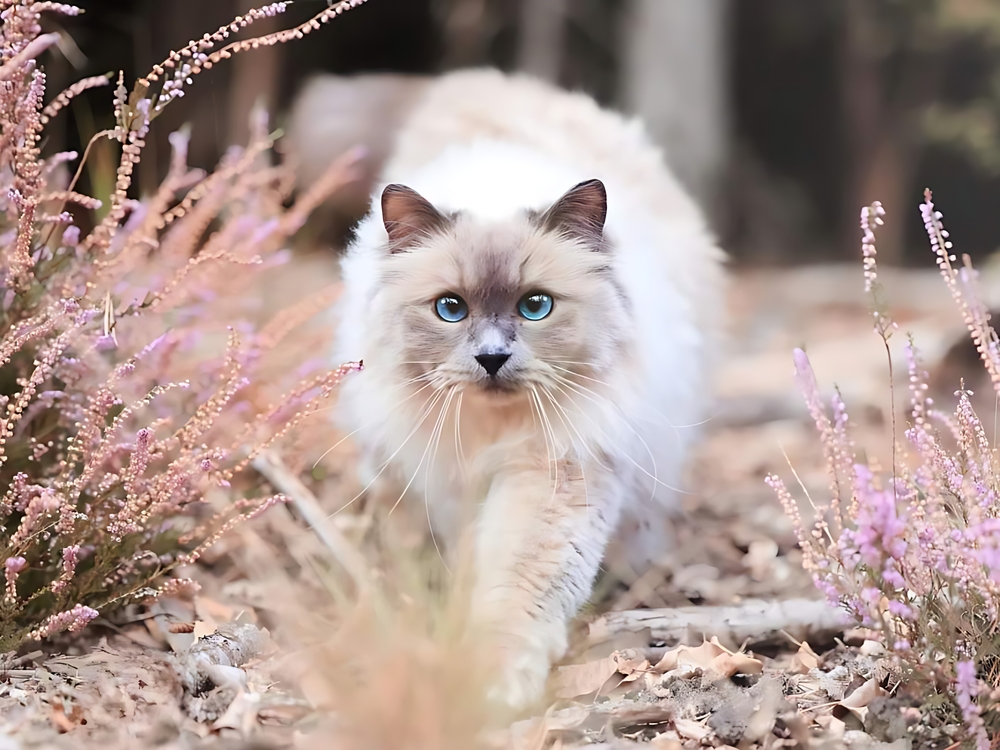
Ragdolls are known for their plush fur and laid-back personalities, but their long, soft coat can be problematic for those with allergies. They shed frequently, and their thick fur traps allergens, making them a high-maintenance option if you’re sensitive to dander. Though they’re wonderful companions, their coat may make it difficult for allergy-prone individuals to coexist comfortably.
